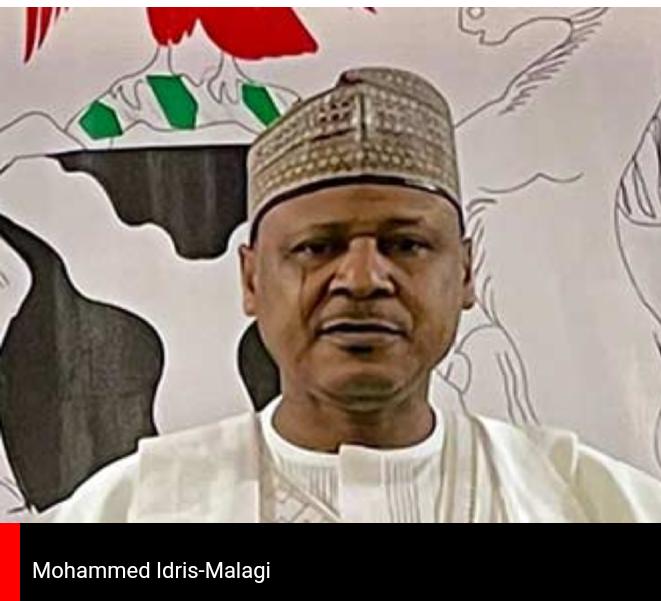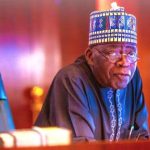On Thursday, Nigerians received an assurance from Mohammed Idris, Minister of Information and National Orientation, that within the next year, the story of the country’s current struggles would change.
Idris gave a speech during Punch Nigeria 50th anniversary lecture, which was held at the Civic Center on Ozumba Mbadiwe Road in Victoria Island, Lagos.
At the lecture given by Nobel laureate Prof. Wole Soyinka, the minister spoke on behalf of President Bola Tinubu and urged Nigerians to exercise patience while ensuring that Tinubu would fulfill his campaign pledges.
“Of course, the challenges are going to be there; no one is pretending that they do not exist, but we see a situation where the story would be quite different in another one year.”
The information minister urged Nigerians to take a cue from Soyinka, who said he usually waited a year before assessing a new government in power.
“Maybe go back to what Professor Wole Soyinka said when he visited President Bola Tinubu, I listened to the journalist who was asking him to comment on the current administration and what he said, ‘even in my character, I wouldn’t talk until whoever is in office stays for at least one year.’”
Speaking on the efforts being made by the government to take the country out of the woods, the minister said, “Only a few days ago, we invited captains of industries, Dangote, the BUA, the Elumelu, and ministers, among others, and we all locked ourselves in a room for about three and a half hours discussing how Nigeria is going to get better, and everyone in that room, from the private sector, from the central governments and the sub-nationals, believe that this country is going to get better.
“So, I urge you to see this in line with what Professor Wole Soyinka has said, around what time? Of course, you can criticise, you can offer suggestions, but the country has to exist. Let us, please talk about all those good things happening; it’s not bad stories all the time.”
While stressing that economic challenges were not peculiar to Nigeria, the minister referenced the case of the United Kingdom, which recently slipped into a recession.
Idris said, “Nigeria is going through hard times, as we see, but this is not new and peculiar to this country. All the issues we are discussing now are issues that are also being discussed around the world.
“Only a few weeks ago, we heard that the United Kingdom had gone into recession. I am glad that it did not happen here. Otherwise, the story would be ‘Oh, Nigeria is in recession’ as if it is going to be the end of the world for the country.”
According to him, the incumbent administration started work on the first day in office, adding that the government believed that all the challenges plaguing the nation were for the country’s good.
He said, “The government of President Ahmed Tinubu, as you know, took bold steps from inception, the first one being that upon the resumption of office on day one, the President took away fuel subsidy; second, he also brought clarification to the foreign exchange regime. Now, these suggest that two major issues have been eating deep into the economy. As someone put it, the economy was a dead horse by the time the President came in, so whether the subsidy was removed or not, it would be very challenging. The President took it very boldly, ensuring that this subsidy goes away for the benefit of all, and he was prepared from day one that it was not going to be an easy thing.
“Of course, 10 months down the road, we are seeing the effects of some of these hard decisions, but I can tell you, the good story is that the government is taking bold, proactive decisions to ensure that Nigeria’s economy returns. Let me say this: The government believes that all these things are happening for the good of the country, and the economy is going to be good again.”
Recounting what the present administration had done so far, the minister urged the citizenry to focus on the positives.
“The National Bureau of Statistics recently said for the first time in a very long time that capital imports are improving by about 66 per cent. If we want to continue this movement, fuel subsidy had to go. One reason is that our consumption has decreased by over a billion litres; domestic refining capacity has increased.
“The insecurity inherited by the government; my house is in Kaduna and I drive frequently between Kaduna and Abuja. Months back, it was difficult for you to ply that road; it is either you are on a train, which is very challenging, as you know, going by some of the things that have happened, but now you can leave Abuja and go to Kaduna by 9 pm, and you can guarantee that you would get there.
“The Governor of Borno State has acknowledged that the insecurity that is there in terms of Boko Haram and banditry, among others, has been almost pushed to the back. We are not saying that insecurity has completely disappeared, but it has improved significantly in these 10 months.
“All the kidnappers that were around Abuja, making Abuja a little bit difficult, are either not with us anymore or are with the security agencies. So, these challenges will continue to be there, but the most important thing is that the government is being proactive and taking the right steps towards ensuring that all these challenges go away.”
Idris further disclosed that the petroleum sector should expect a major policy shift that would enhance the operations of the sector, adding that almost all the demands of the Nigeria Labour Congress had also been met.
“I want to tell you that very soon, you will hear a major policy shift within the petroleum industry that will enhance operations and increase investments in that sector.
“Also, the Nigerian Labour Congress has complained about the hardship in the land, which may be true, but we are happy that 24 hours after now, they also found it necessary to take action. Most of the 15-point demands that labour made in October of last year have been met; those still pending cannot easily be met. For example, in that agreement, there was the issue of the CNG buses that the government has committed over N100bn to.
“Of course, we know we cannot just buy CNG buses, processes are in place. The President said there would be a wage award of N25,000, and at the same time, labour complained, and the government said we should listen to them. He brought them in, and they had a thorough conversation. They agreed they needed nothing less than N35,000, which the president approved after doing the numbers.
“Two days ago, there was also a resumption of the suspended N25,000 monthly payment for three months that the government approved for 15 million households in this country.”
Discussing the ministerial panel established by the President, the minister mentioned that the panel had completed its work.
The information minister implored the media ‘to please report us well.’
“This is our country; we do not have any other country. If we run down businesses, and there is no other place for all of us to go to,” he added.
Agency Report



